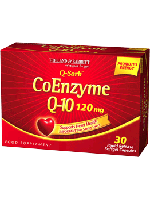 |
| 1-3 and 8-9 were warm up and warm downs! |
It is generally recognised that in order to get into the best physical health, that diet is just as important if not more so then exercise. Sometimes though eating well and exercising hard just isn't good enough to reach your peaks. At this point a lot of serious athletes move towards sports supplements to help improve performance.
 |
| A whole range of supplements |
Amino Acid Supplements
What are they?
They contain mainly branched chain Amino Acids; Valine, Leucine and Isoleucine, that make up 1/3 of muscle protein
What do they do?
The theory is that they prevent the break down of muscle during intense exercise (Macleen et al, 1994) when glycogen stores have been used up and muscle would be used as the next source. It does this by converting the branched chain amino acids mentioned above into glutamine and alanine (simpler amino acids), these can then be used as a source of fuel instead. Amino Acid supplements can be taken before and during exercise to aid muscle recovery.
Do you need them?
Studies have shown that they have a similar response to increasing carbohydrate consumption before exercise, as this will also provide fuel for the exercise helping to prevent damage to muscles. As everything found in these supplements is found in your normal diet there are no side effects to taking these!
Anti-oxidant Supplements
What are they?
As you may expect they contain various anti-oxidants such as vitamin C, E and Beta-carotene, which can all be found in your regular diet.
What do they do?
These are less of a performance enhance and more of a precaution as exercise causes an increase in free radicals to be formed due to extra oxygen use, leading to an increase in the risk of things like cancer. Cue the Daily Mail headline "exercise causes cancer". Taking Anti-oxidant supplements will help raise the levels of these in your body and help defend against free radicals and thus protect you from getting cancer!
Do you need them?
It is thought that regular exercise helps enhance you anti-oxidant defences (Robertson et al, 2001) so it may be that these supplements aren't necessary, however as a rule it isn't a bad idea to get anti-oxidants in your diet so if you don't feel like you are getting enough. The side effects from taking too much vary from chemical to chemical, some are harmless, while others like selenium can lead to vomiting and hair loss at high doses.
Caffeine
What is it?
I've gone into a lot of detail about caffeine before in my Ode to Coffee, but for the sake of this I'll remind you that it is a stimulant, that acts in several ways.
What does it do?
Caffeine stimulates the CNS (Central Nervous System) making you feel more alert and helps concentration. It also releases adrenaline and mobilises fatty acid allowing it to be used for energy instead of glycogen aiding fat loss and endurance (glycogen stores last for longer). Another beneficial effect of caffeine is that it can increase the strength of muscle contractions by stimulating the release of calcium ions. To gain a useful effect from caffeine, either take a caffeine tablet or a strong cup of coffee before a workout. For the best effect starve yourself of caffeine for a few days and just before an event take a large dose!
Do you need it?
This is one of the supplements I personally like a lot, I wouldn't recommend a cup of coffee before a game of football for example as it can be a bit of a diuretic and make you thirsty but if you can take a pro-plus tablet then it may help you focus, especially if you are playing a tactical game. In terms of side effects there are a couple of short term ones that include; anxiety, trembling and sleeplessness, though as of yet no real long term side effects.
Conjugated Linoleic Acid (CLA)
What is it?
CLA is an unsaturated fatty acid that is found in some meat and whole milk. Supplements are made from sunflower and safflower oil.
What does it do?
CLA has been linked with fat loss, and is thought to work by activating lipase which releases fat from the cells and allows them to be metabolised. It is also believed to suppress the function of lipoprotein lipase which causes fat to be stored within cells.
Do you need it?
CLA in conjunction with resistance training has been found to reduce body fat and encourage muscle growth (Gaullier et al, 2005), and at this time there have been not reported side effects.
That's all for now, in the next part of this I'll be looking at Creatine, Energy gels, Ephedrine and fat burners!
Rich





No comments:
Post a Comment